The spaces for sustainable coffee production in Mexico at the beginning of the 21st century

This work is licensed under a Creative Commons Attribution-NonCommercial-NoDerivatives 4.0 International License.
Main Article Content
Main Article Content
Abstract
This document analyzes the different coffee production systems that have gained importance in the international sphere which are commonly referred to as alternative and sustainable, without sufficient questioning of the concept itself of sustainability. Upon reviewing the evolution of these systems at the world scale, it is clear that numerous contradictions are presented in them that generate various questions on the virtues they extol. The document also analyzes how they have acquired importance in Mexico and an effort is made to quantify the same. Finally, a case is presented that demonstrates that the alternative systems are significant but limited in their procurement of at least the economic sufficiency demanded by producers.
Article Details
References
Apoyos y Servicios a la Comercialización Agropecuaria, Aserca, 2002, «Café de México». Claridades Agropecuarias,núm. 103. SAGARPA, México.
Bartra, Armando, Rosario Cobo y Lorena Paz Paredes, 2004, Tosepan Titataniske. Abriendo horizontes, 27 años de historia. Sociedad Cooperativa Agropecuaria Regional Tosepan Titataniske, S. C. L., México.
Biggart, Nicole W. y Thomas D. Beamish, 2003, «The economic sociology of conventions: Habit, custom, practice and routine in market order». Annual Review of Sociology,vol. 29, pp. 443-464. DOI: https://doi.org/10.1146/annurev.soc.29.010202.100051
Boyer, Robert, 2002, «From canonical Fordism to different modes of development». En Regulation Theory. The State of the art,editado porRobert Boyer y Yves Saillard, pp. 231-237. Routledge, Nueva York.
Busch, Lawrence y Bain, Carmen, 2004, «New! Improved? The transformation of the global agrifood system». Rural Sociology, vol. 69, núm. 3, pp. 321-346. DOI: https://doi.org/10.1526/0036011041730527
Cámara de Diputados, 2006, «Café, la agroexportación». Documento base para el Foro Café, la agroexportación,7 y 8 de junio.
Certificadora Mexicana-Certimex, 2007, «Acreditaciones». En http://www.certimexsc.com/ quienes_acreditaciones.htm [consulta: marzo, 2007].
Choi, Young B., 1999, «Conventions and economic change: A contribution toward a Theory of Political Economy». Constitutional Political Economy,vol. 10, pp. 245264. DOI: https://doi.org/10.1023/A:1009059528557
Comercio Justo México, CJM, 2004, Comercio Justo. El poder de un mercado diferente. Informe de actividades 1999-2004. México.
Common Code for the Coffee Community, 2004, Código Común para la Comunidad Cafetalera, versión 9 de septiembre de 2004.
Common Code for the Coffee Community, 2007, Members of the Common Code for the Coffee Community Association, febrero.
Daviron, Benoit y Stefano Ponte, 2005, The Coffee Paradox. Global markets, commodity trade and the elusive promise of development. Zed Books, Londres, Reino Unido. DOI: https://doi.org/10.5040/9781350222984
Doppler, Flurina y Alma Amalia González, 2007, «El Comercio Justo: Entre la institucionalización y la confianza». Problemas del Desarrollo,vol. 38, núm. 149. UNAM, México. DOI: https://doi.org/10.22201/iiec.20078951e.2007.149.7658
Durán, Leonardo, 2006, «Sociedad Cooperativa Agropecuaria Regional Tosepan Titataniske». Ponencia presentada en el Foro Café: la agroexportación,7 y 8 de junio, mecanuscrito.
Durán, Leonardo, 2007, Asesor de la Cooperativa Tosepan Titataniske. Comunicación personal, 17 de febrero.
Escamilla Prado, Esteban y Octavio Ruiz Rosado, 2006, «Producción y calidad del café orgánico en México». Ponencia presentada en el Foro Café: la agroexportación,7 y 8 de junio, mecanuscrito
Fairtrade Labelling Organizations, FLO, International, 2007a, Criterios genéricos de comercio justo fairtrade para organizaciones de pequeños productores. FLO internacional.
Fairtrade Labelling Organizations, FLO, International, 2007b, Number of fairtrade coffee producers per country. En http://www.fairtrade.net/ coffee.html [consulta: marzo, 2007].
Fideicomisos Instituidos en Relación a la Agricultura, FIRA, 2003, «Agricultura orgánica, Una oportunidad sustentable de negocios para el sector agroalimentario mexicano». FIRA Boletín informativo,vol. XXXV, núm. 322, diciembre.
Fridell, Gavin, 2006, «Comercio justo, neoliberalismo y desarrollo rural: una evaluación histórica». Íconos,núm. 24, pp. 43-57. DOI: https://doi.org/10.17141/iconos.24.2006.145
Gigante, 2007, «Perfil Corporativo». En http://www.gigante.com.mx [consulta: febrero, 2007].
Giovannucci, Daniele y Freek Jan Koekoek, 2003, The State of Sustainable Coffee: A study of twelve major markets. International Coffee Organization e International Institute of Sustainable Development, Londres, Inglaterra.
Giovannucci, Daniele y Stefano Ponte, 2005, «Standards as a new form of social construct? Sustainability initiatives in the coffee industry». Food Policy, vol. 30, pp. 284-301. DOI: https://doi.org/10.1016/j.foodpol.2005.05.007
Gómez Cruz, Manuel A., Rita Schwentesius Rindermann, M.a del Refugio Meraz Alvarado, Aurora J. Lobato García y Laura Gómez Tovar, 2005, Agricultura, apicultura y ganadería orgánicas de México–2005. Situación–retos–tendencias. PIAICIESTAAM, México.
González, Alma Amalia, Thierry Linck y Reina Moguel, 2003, «El comercio de valores éticos: Las reglas del juego del café solidario». Revista Europea de Estudios Latinoamericanos y del Caribe, núm. 75, pp. 31-45. DOI: https://doi.org/10.18352/erlacs.9692
González, Alma Amalia y Ronald Nigh, 2005, «Smallholder participation and certification of organic farm products in Mexico». Journal of Rural Studies, vol. 21, pp. 449460. DOI: https://doi.org/10.1016/j.jrurstud.2005.08.004
Greenberg, Russell, 2001, «Overview of sustainable coffee». En http://nationalzoo.si.edu/ ConservationAndScience/MigratoryBirds/Coffee/thoughtpaper.cfm [consulta: marzo, 2007].
Harvey, David, 2006, «Neo-liberalism as creative destruction». Geografiska Annaler, Series B: Human Geography, vol. 88, núm. 2, pp. 145-158. DOI: https://doi.org/10.1111/j.0435-3684.2006.00211.x
International Coffee Organization, ICO, 1997, Agricultural and Economic Analysis of Organically Grown or «Organic» Coffee. Londres, Inglaterra.
International Coffee Organization, ICO, 2006, Organic Coffee Export Statistics. Calendar Year 2005. Londres, Inglaterra.
International Coffee Organization, ICO, 2007a, «Total production of exporting countries. Crop years 2001/02 to 2006/07». En http://www.ico.org [consulta: marzo, 2007].
International Coffee Organization, ICO, 2007b, «Exports by exporting countries to all destinations». En http://www.ico.org [consulta: marzo, 2007].
International Federation of Organic Agriculture Movements, IFOAM, 2005, «Principles of Organic Agriculture». En http://www.ifoam.org [consulta: diciembre, 2006].
Kilcher, Lukas, 2005, «How organic agriculture contributes to sustainable development». En The World of Organic Agriculture. Statistics and Emerging Trends 2005, editado por Helga Willer y Minou Yuseefi. IFOAM, Alemania.
Kolk, Ans, 2005, «Corporate Social Responsability in the coffee sector: The dynamics on MNC responses and Code Development». European Management Journal,vol. 23, núm. 2, pp. 228-236. DOI: https://doi.org/10.1016/j.emj.2005.02.003
Krier, Jean-Marie, 2005, Fair Trade in Europe 2005. Facts and figures on Fair Trade in 25 countries. FLO, IFAT, NEWS! y EFTA, Bélgica.
Lewis, David, 1969, Convention: A philosophical study. Harvard University Press, Massachussets, Estados Unidos.
Maitland, Alison, 2004, «Starbucks tastes Oxfam’s brew». Financial Times,14 de octubre de 2004, pp. 12.
Millstone, 2006, «Millstone® Coffee expands Commitment to Social Responsibility with three new organic, Fair Trade Certified™ Blends». En http://www.millstone.com [consulta: marzo, 2007].
Moguel, Patricia y Víctor Toledo, 1999, «Biodiversity conservation in traditional coffee systems of Mexico». Conservation Biology, núm. 13, pp. 11-21. DOI: https://doi.org/10.1046/j.1523-1739.1999.97153.x
Morgan, Kevin y Jonathan Murdoch, 2000, «Organic vs. conventional agricultural: knowledge, power and innovation in the food chain». Geoforum,vol. 31, pp. 159173. DOI: https://doi.org/10.1016/S0016-7185(99)00029-9
Muradian, Roldan y Wim Pelupessy, 2005, «Governing the Coffee Chain: The Role of Voluntary Regulatory Systems». World Development,vol. 33, núm. 12, pp. 20292044. DOI: https://doi.org/10.1016/j.worlddev.2005.06.007
Murdoch, Jonathan, Terry Marsden y Jo Banks, 2000, «Quality, nature and embeddedness: some theoretical considerations in the context of the food sector». Agricultural and Human Values,vol. 17, núm. 1, pp. 107-125. DOI: https://doi.org/10.1111/j.1944-8287.2000.tb00136.x
Naturland, 2005, Normas de Naturland, Producción.Alemania.
Nestel, David, 1995, «Coffee in Mexico: international market, agricultural landscape and ecology». Ecological Economics,núm. 15, pp. 165-178. DOI: https://doi.org/10.1016/0921-8009(95)00041-0
Oechssler, Jörg, 1999, «Competition among conventions». Computational & Mathematical Organizational Theory, vol. 5, núm. 1, pp. 31-34. DOI: https://doi.org/10.1023/A:1009646410168
Pendergrast, Mark, 2002, El café. Historia de la semilla que cambió el mundo. Javier Vergara Editor, Argentina.
Perfecto, Ivette, Robert Rice, Russell Greenberg y Martha E. van der Voort, 1996, «Shade Coffee: A Disappearing refuge for Biodiversity». Bioscience,vol. 46, núm. 8, pp. 598-608. DOI: https://doi.org/10.2307/1312989
Pérez Akaki, Pablo, 2007, «Los pequeños productores de café de la región Otomí-Tepehua: su problemática y sus alternativas». Tesis doctoral. UNAM, México.
Ponte, Stefano, 2002, «Standards, Trade and Equity: Lessons from the Speciality Coffee Industry». CDR Working Paper,núm. 02.13. Copenhague.
Pruijn, Jeroen, 2006, «Café de comercio justo, el poder de un mercado diferente». Ponencia presentada en el Foro Café: la agroexportación,7 y 8 de junio.
Rainforest Alliance, 2005, Sustainable Agriculture Standard. Rainforest Alliance, EUA. 2006a, About us. Our Mission.En http:// www.rainforest-alliance.com [consulta: diciembre, 2006].
Rainforest Alliance, 2006b, Profiles in Sustainability: Kraft Takes the Lead in Supporting Sustainable Coffee Production. Nueva Cork, EUA.
Rainforest Alliance, 2007a, Reflecting Trend Toward Global Companies Embracing Sustainability, McDonald’s UK Puts Rainforest Alliance Certified Coffee on the Menu. En http://www.rainforest-alliance.org/news.cfm?id=mcdonalds [consulta: marzo, 2007].
Rainforest Alliance, 2007b, Summary of certified area under cultivation. En http://www.rainforestalliance.org/programs/agriculture/shop/documents/certified_farms.pdf [consulta: marzo, 2007].
Rainforest Alliance, 2007c, Products from Farms Certified by the Rainforest Alliance—Coffee Producers. En http://www.rainforest-alliance.org/programs/agriculture/shop/coffeeproducers_mexico.html [consulta: marzo, 2007].
Raynolds, Laura, 2002a, «Consumer/Producer Links in Fair Trade Networks». Sociologia Ruralis,vol. 42, núm. 4, pp. 404-424. DOI: https://doi.org/10.1111/1467-9523.00224
Raynolds, Laura, 2002b, «Poverty alleviation through participation in fair trade coffee networks: existing research and critical issues». Documento para la Fundación Ford, disponible en www.colstate.edu/depts/sociology/FairTradeResearchGroup/doc/rayback.pdf. (Fecha de consulta: 7 de febrero de 2007).
Reardon, Thomas y Christopher Barret, 2000, «Agroindustrialization, globalization, and international development. An overview of issues, patterns and determinants». Agricultural Economics,núm. 23, pp. 195-205. DOI: https://doi.org/10.1016/S0169-5150(00)00092-X
Renard, Marie-Christhine, 1999, Los intersticios de la globalización. Un label (Max Havelaar) para los pequeños productores de café. Misceláneas, México, D. F. DOI: https://doi.org/10.4000/books.cemca.510
Rice, Robert A. y Justin R. Ward, 1996, Coffee, Conservation, and Commerce in the Western Hemisphere. Smithsonian National Zoological Park, Estados Unidos.
Rindova, Violina P. y Charles J. Fombrun, 2001, «Entrepreneurial action in the creation of the specialty coffee niche». En Entrepreneurial Dynamic: The origins of entrepreneurial and its role in industry evolution,Claudia Schoonhoven y Elaine Romanelli (eds.), pp. 236-261. Estados Unidos. DOI: https://doi.org/10.1515/9781503618527-011
SETEM, 1999, Café amargo. Por un comercio Norte-Sur más justo. Icaria-Más Madera, Barcelona, España.
Sistema de Información Agroalimentaria de Consulta, SIACON, 2006, versión 1.1. Secretaría de Agricultura, Ganadería, Desarrollo Rural y Pesca, México.
Sistema Producto Café, 2007, Correo Cafetalero. núm. 576, 26 de abril.
Smithsonian Migratory Bird Centre, SMBC, 2002, Norms for Production, Processing and Marketing of Bird Friendly Coffee, Versión 1.
Smithsonian Migratory Bird Centre, SMBC, 2007, Bird friendly coffee. En http://nationalzoo.si.edu/ConservationAndScience/ MigratoryBirds/Coffee/Farms [consulta: enero, 2007].
Superama, 2007, «Directorio de tiendas».En http://www.superama.com.mx [consulta: febrero, 2007].
Tosepan Titataniske, 2007, «¿A qué nos dedicamos?». En http://www.tosepan.com [consulta: febrero, 2007].
Toledo, Víctor y Patricia Moguel, 1996, «En busca de un café sostenible en México. La importancia de la diversidad biológica y cultural». Ponencia presentada alPrimer congreso del café sostenible Smithsonian Migratory Bird Centre, Washington, Estados Unidos, 16-18 de septiembre, mecanuscrito.
UTZ Kapeh, 2006a, Utz Kapeh Código de conducta. Versión 2006 rev.01.
UTZ Kapeh, 2006b, Utz Kapeh Annual Report 2005. Utz Kapeh, Ámsterdam, Holanda.
UTZ Kapeh, 2007a, «List of independet certifiers». En http://www.utzcertified.org /index.php [consulta: marzo, 2007].
UTZ Kapeh, 2007b, «Trained agronomist list». En http://www.utzcertified.org/index.php [consulta: marzo, 2007].
Watts, Michael y David Goodman, 1997, «Agrarian questions, global appetite, local metabolism: nature, culture, and instrustry in fin-de-cycle agrofood systems». En Globalization, food, agrarian questions and global restructuring, editado por D. Goodman y M. Watts, pp. 1-34. Routledge, Estados Unidos.
Young, H. Peyton, 1993, «The evolution of conventions». Econometrica,vol. 61, núm. 1, pp. 57-84. DOI: https://doi.org/10.2307/2951778








